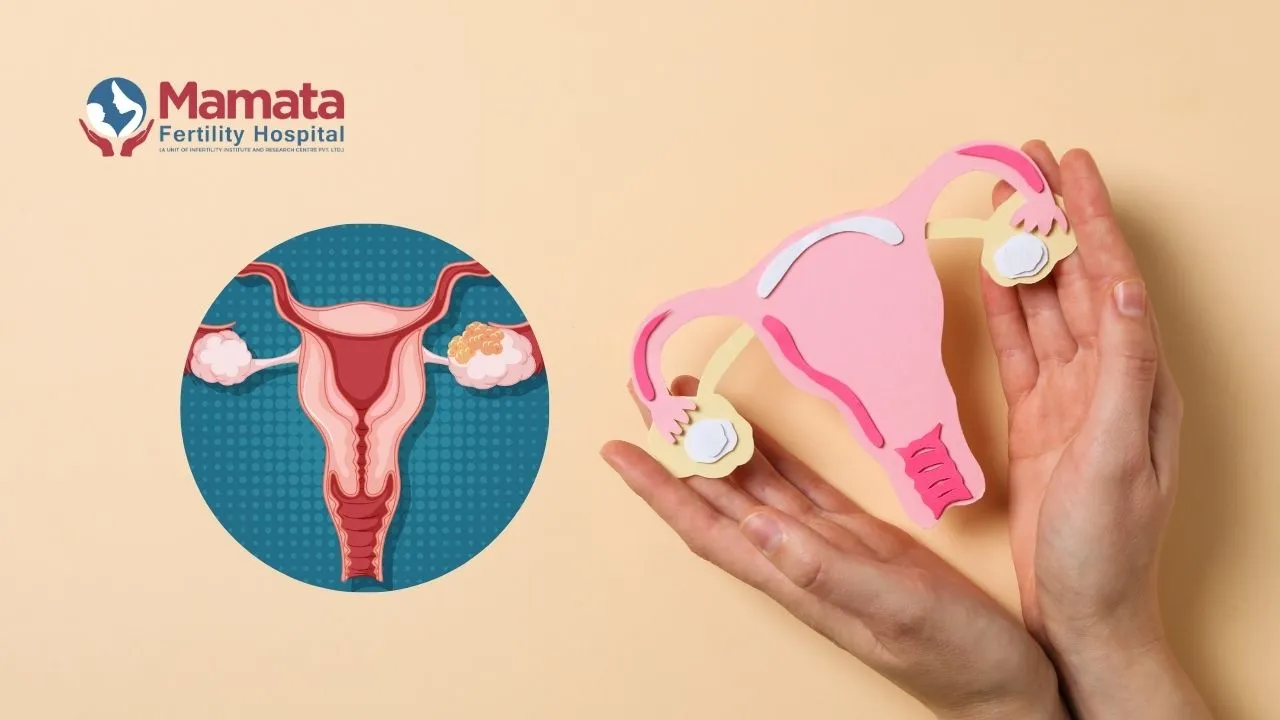Polycystic Ovary Disorder (PCOD) affects millions of women worldwide, leading to hormonal imbalances, irregular periods, weight gain, and even fertility challenges. While there is no one-size-fits-all solution to “cure” PCOD permanently, effective management through medical treatments, natural remedies, and lifestyle changes can help control symptoms and improve your quality of life. With proper care and expert guidance, women can achieve sustained relief and better health outcomes.
PCOD
PCOD is caused by a hormonal imbalance where the ovaries produce excessive immature or partially mature eggs, which can lead to cyst formation. Although PCOD is not life-threatening, it significantly affects a woman’s reproductive and metabolic health. Symptoms include irregular or missed periods, weight gain, acne, hair thinning, and difficulty conceiving.
The biggest challenge with PCOD lies in its impact on fertility. The hormonal imbalance often disrupts ovulation, making it harder to conceive. Women with untreated PCOD may also experience long-term risks like diabetes, high blood pressure, and heart disease. Early diagnosis and treatment are crucial for avoiding these complications.
Medical Treatments for PCOD
Expert medical intervention is essential for managing PCOD effectively. Depending on the severity of the condition and your goals (e.g., improving fertility or reducing metabolic risks), doctors may recommend the following treatments:
Hormonal Medications
Medications like oral contraceptives help regulate menstrual cycles and control hormonal imbalances. They also aid in reducing acne and excessive hair growth caused by PCOD.
Ovulation Induction
For women trying to conceive, ovulation-inducing drugs like Clomiphene Citrate may be prescribed. These medications stimulate the ovaries to release mature eggs, improving the chances of pregnancy.
Insulin-Sensitizing Drugs
PCOD is often linked to insulin resistance. Medications like Metformin improve insulin sensitivity and, in turn, regulate both glucose levels and menstrual cycles.
Laparoscopic Ovarian Drilling (LOD)
For severe cases, laparoscopic surgery may be suggested. LOD involves making small punctures in the ovaries to restore normal ovulation. This is usually considered when other treatments fail.
At Mamata Fertility Hospital Hyderabad, a team of specialists creates personalized treatment plans for PCOD. From advanced diagnostics to tailored therapies, their holistic approach ensures optimal results.
Natural Remedies and Lifestyle Changes
While medical interventions are effective, a consistent lifestyle overhaul plays a key role in managing PCOD. Here are some natural remedies and sustainable lifestyle changes that complement treatment:
Balanced Nutrition
Adopt a diet rich in whole grains, lean proteins, healthy fats, and green vegetables. Minimize processed foods, sugars, and refined carbs, as they can exacerbate insulin resistance.
- Include anti-inflammatory foods like berries, turmeric, and fatty fish.
- Add omega-3-rich foods like flaxseeds and walnuts to promote hormonal health.
Regular Exercise
Exercise is crucial for improving metabolism and maintaining a healthy weight. Aerobic activities like walking, cycling, or swimming, combined with strength training exercises, can help reduce insulin resistance and regulate hormones. Aim for at least 30 minutes of activity 5 days a week.
Stress Management
Chronic stress disrupts hormonal balance. Practices like yoga, meditation, deep breathing exercises, or even journaling can reduce stress levels and improve overall well-being.
Sleep Hygiene
Lack of sleep can worsen PCOD symptoms, as it disrupts hormones regulating appetite and stress. Aim for 7-8 hours of quality sleep each night. Maintain a consistent bedtime routine and avoid excessive screen time before sleeping.
Herbal Support
Some women find relief in natural remedies like spearmint tea (to reduce androgen levels) or cinnamon (to improve insulin sensitivity). However, consult your healthcare provider before incorporating herbs or supplements into your routine.
PCOD and Fertility
PCOD significantly impacts fertility because it interferes with regular ovulation, the process necessary for conception. However, with proper management and medical treatment, many women with PCOD successfully conceive and have healthy pregnancies. Advanced fertility treatments like IVF (in-vitro fertilization) or IUI (intrauterine insemination) are available for women who struggle with conception despite other interventions.
At Mamata Fertility Hospital, Hyderabad, experienced fertility experts provide a range of solutions, from ovulation stimulation to Specialized IVF treatments at Hyderabad, helping women with PCOD achieve their dream of parenthood.
Can You Cure PCOD Permanently?
While there is no universal “cure” for PCOD, the condition is manageable with a combination of medical treatments, diet, exercise, stress management, and other lifestyle changes. The key lies in consistency and early intervention. By working closely with healthcare professionals and adopting healthy practices, you can alleviate symptoms, reduce long-term risks, and improve fertility outcomes.
Take Control of PCOD with Mamata Fertility Hospital, Hyderabad
If you’re looking for expert help to manage PCOD effectively, Mamata Fertility Hospital, Hyderabad is your trusted partner. Their team of experienced doctors, nutritionists, and fertility specialists offers personalized care, helping you regain control of your hormonal health and achieve a better quality of life.
Don’t wait for symptoms to worsen. Schedule a consultation with Mamata Fertility Hospital, Hyderabad today and take the first step toward permanent relief from PCOD.




